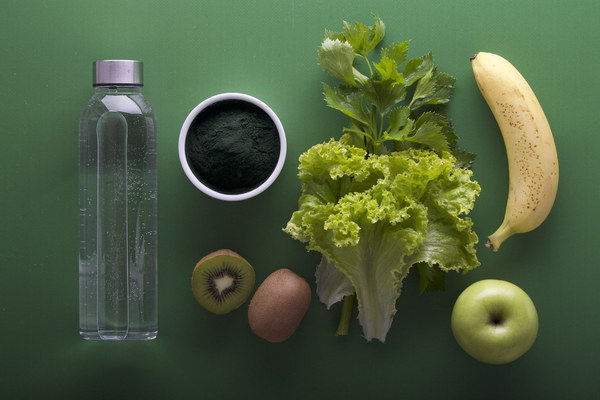Corn vs Rice Which is More Beneficial for Stomach Health
In the ongoing debate of corn versus rice, one question that often arises is: which one is more beneficial for stomach health? Both corn and rice are staple foods in many cultures, but they differ in their nutritional profiles and effects on the digestive system. In this article, we will explore the differences between corn and rice and determine which one is more suitable for maintaining a healthy stomach.
Firstly, let's consider the nutritional content of both corn and rice. Corn is rich in vitamins, minerals, and antioxidants, while rice is known for its low fat content and high fiber. Both grains have their own unique set of health benefits, but when it comes to stomach health, certain factors should be taken into account.
Corn is a good source of fiber, which can help regulate bowel movements and prevent constipation. High-fiber foods are often recommended for those with irritable bowel syndrome (IBS) or other gastrointestinal issues, as fiber can add bulk to stool and promote smoother digestion. On the other hand, rice has a lower fiber content, which might not be as effective in managing digestive disorders.
One of the main concerns with rice is its gluten content, which can be problematic for individuals with celiac disease or gluten sensitivity. Corn, on the other hand, is naturally gluten-free, making it a safer option for those with gluten-related issues. For people with a sensitive stomach, consuming gluten can lead to bloating, gas, and discomfort, so opting for corn over rice might be more beneficial in this regard.
Another important factor to consider is the glycemic index (GI) of both grains. The GI measures how quickly a food raises blood sugar levels. Rice has a lower GI compared to corn, meaning it is less likely to cause spikes in blood sugar and insulin levels. For those with diabetes or insulin resistance, choosing a lower GI food like rice might be a better option to maintain stable blood sugar levels and prevent stomach discomfort.
However, corn also has its advantages. It is rich in vitamin B1 (thiamine), which plays a crucial role in converting carbohydrates into energy and maintaining a healthy nervous system. A deficiency in vitamin B1 can lead to stomach discomfort, so incorporating corn into your diet can help ensure you're getting enough of this essential nutrient.
Furthermore, corn contains antioxidants like zeaxanthin and lutein, which have been linked to a lower risk of certain chronic diseases, including stomach cancer. These antioxidants help protect the stomach lining and reduce inflammation, contributing to overall stomach health.
In conclusion, when it comes to stomach health, the choice between corn and rice depends on individual dietary needs and preferences. While corn is gluten-free and high in fiber, rice has a lower glycemic index and is suitable for those with diabetes or insulin resistance. Ultimately, a balanced diet that includes both corn and rice can provide a wide range of nutrients and support a healthy digestive system.

It's important to note that the key to maintaining a healthy stomach is not just the type of grain you choose, but also the way you prepare and consume it. For example, opting for whole grains instead of refined grains can increase fiber content and promote better digestion. Additionally, incorporating a variety of foods into your diet ensures that you're getting a diverse range of nutrients that support overall stomach health.
In summary, corn and rice both have their own benefits for stomach health. Corn is a good source of fiber and gluten-free, while rice has a lower glycemic index and is suitable for individuals with diabetes or insulin resistance. By understanding the nutritional profiles and individual needs, you can make an informed decision on which grain is more beneficial for your stomach health.









